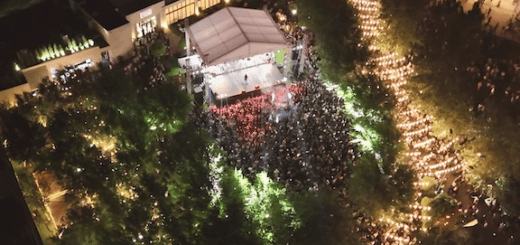Armenians Cannot Survive by Breaking What Saved Us

By Ardashes “Ardy” Kassakhian
A deeply troubling crisis is unfolding in Armenia — one that many inside and outside the country barely notice, and one met with an unsettling silence from much of the public. Those who closely follow Armenian affairs know exactly what I’m referring to: the mounting campaign by the authorities against the Armenian Apostolic Church. In recent months, priests and archbishops have been detained, tried, and at least one senior clergyman has already been sentenced to prison. They stand accused of everything from corruption to attempting to overthrow the government — charges that one can’t help but think are politically motivated.
The escalation began after Archbishop Bagrat Galstanyan of the Tavush Diocese led mass protests in Yerevan against the government’s decision to hand over four border villages to Azerbaijan, and publicly called for Prime Minister Nikol Pashinyan’s resignation. The movement did not result in a “velvet counter-revolution,” as some had hoped or feared, but it clearly unsettled the authorities. The rallies kept alive a flame of dissent that no amount of government media messaging could extinguish. And ever since, the state has intensified its pressure on clergy, culminating in the arrests and prosecution of multiple church leaders and prominent private citizens who have spoken out against these actions.
Now there is something deeply wrong with the Armenian nation when Azerbaijan bulldozes Armenian churches in Artsakh and, at the same time, the Armenian government seems determined to bulldoze the dignity of the Armenian Church in Armenia. One attack destroys what was built of stone and our Christian heritage; the other attempts to break the spirit of a nation by claiming to be doing God’s work. Two different methods but united in achieving the same tragic result — severing the Armenian nation from its spiritual roots.
And yes, I can already hear the chorus from overconfident, polished, self-appointed “analysts” and government-friendly commentators: “Here go the diasporans again, meddling, emotional, out of touch.”
I’ve lived long enough, and heard that line enough times, to know it’s not an argument but more of an ad hominem attack intended to distract the community and validate this undemocratic campaign of harassment. Before recent events, this argument was usually deployed by the same pro-West color revolutionaries who treat the Church like a fancy fashion accessory – something to dust off for a special ceremonial occasion to show off to others and then quickly shove back in a closet while lecturing the rest of us about “progress.”
Funny enough, the same pundits who can barely fumble their way through the Lord’s prayer on any given Sunday (not that any of them are frequent church attendees) have suddenly become theologians the moment the government decides the clergy are their most recent threat.
Across centuries, one institution — the Armenian Apostolic Church — has held Armenians together more than any other. It has kept the nation from falling apart even when kings fell, empires swallowed up lands, and foreign rulers tried their hardest to grind Armenia into the dirt. During difficult times, it wasn’t YouTube commentators, academics, or political theorists who safeguarded our identity. It was priests smuggling manuscripts, families fighting and willing to die for their faith, and the holy sanctuaries that served as the beating heart of communities scattered across continents. It was the leaders of the Armenian church that ordered every able-bodied man and woman to the battlefield of Sardarabad to repel the Turkish army’s attempt to finalize their plan of Armenia’s annihilation.
Today, instead of honoring that legacy, the entire Armenian nation watches as clergy is handcuffed, questioned by police, and church leadership slandered like they are enemies of the state and not shepherds of a faith older than the First, Second, Third or the so-called Fourth Republic.
Some will say, “But the Church has issues.” Sure, it does. I won’t deny that and few would. I challenge anyone to show me any 1,700-year-old institution without imperfections. Reform? Absolutely possible. Dialogue? Undoubtedly necessary. But reform should not be served up as humiliation. Accountability shouldn’t be swapped for blatant coercion. And democracy has never meant sending the police to arrest non-violent men of God who answer to a higher authority than those in Yerevan.
Furthermore, a government confident in its legitimacy doesn’t go to war with its own spiritual foundation. When Armenia’s leaders start treating faith as a nuisance instead of a pillar, you don’t get a modern society — you get a spiritually bankrupt one.
And if people in power, pseudo academics, or cosplaying analysts with podcasts are going to say that Diasporans who have built and maintained churches throughout the globe should hold their tongues about this witch hunt because they don’t live in Armenia then they should look in the mirror. These apologists should keep their mouths tightly shut because most of them can’t even remember the last time they took Holy Communion or set foot inside a church for anything other than a wedding or a baptism yet they feel emboldened to speak up about internal church affairs? So let’s talk about the Diaspora and Armenia’s relationship since this is a favorite topic these experts like to raise whenever anybody outside of Armenia dares to express concern or an opinion.
Not a single Armenian in the Diaspora sits thousands of miles away wishing for chaos in Armenia. Nobody wakes up thinking, “How can Armenians in the US (or elsewhere) dictate politics from abroad?” Quite the opposite. Most people I speak to wake up thinking: How do we make sure Armenia still exists in ten, twenty, fifty years? Every diasporan conversation around dinner tables, every advocacy meeting with officials in DC or state capitols, every dollar raised for orphans of slain soldiers or severely underfunded schools is fueled by fear of losing the homeland everyone dreamed of. And most of the Diaspora understands the fragility of what remains after capitulations and terribly poor decisions.
So when Armenians see the government attack one of the only remaining foundations that carried Armenia through genocide, through dispersion, through the brutal loss of Artsakh — forgive us if we get loud. We’ve seen what losing institutions look like. We’ve seen what the cost is of forgetting who we are. The Diaspora builds churches when the homeland can’t. It protects heritage in foreign cities while Azerbaijan erases it on our ancestral lands. The Diaspora lobbies governments for Armenia when Armenia is isolated, tired, and cornered. The Diaspora isn’t a group of outsiders. The Diaspora is the extended heartbeat of a nation that learned, painfully, that survival sometimes means living far from the soil that birthed us but never being any less Armenian than those who still live in what lands Armenia has left.
So no — we will not “stay quiet,” or “stay in our lane,” when that soil is being spiritually scorched from the inside. Silencing the Church won’t make Armenia freer. It won’t make it safer. It won’t make it modern. It will make it rootless — and rootless nations do not survive storms; they get washed away by them.
If the political leaders of Armenia expended just half the energy they have on harassing and arresting church clergy on efforts to free the hostages held in Baku or ensure Artsakh’s Armenians’ safe return to their ancestral lands, I’m certain we would all support these efforts. Instead, they have chosen to divide the nation from within and sever the strongest link the Diaspora has had with the homeland and Mother See of Holy Etchmiadzin.
Armenia needs unity, not spiritual civil war.
Integrity and courage, not intimidation and censorship.
Faith, not fear.
And if speaking that truth makes someone an “interfering diasporan,” then so be it. I’d rather speak up and criticize this undemocratic overreach than watch silently as non-church going uninformed elitists and feckless government officials chip away at the foundations of the Armenian nation — and then wonder why our house collapsed.
————————————————————-





